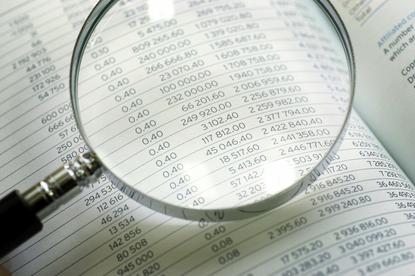ATO report reveals tech companies that paid zero tax in 2016-17
- 14 December, 2018 05:30

The Australian Taxation Office has released its latest corporate tax transparency report which lists companies and how much tax they paid for the previous financial year, 2016-17 income year.
ASG Group, Capgemini, Citrix, Dimension Data, DXC Technology, Empired, Fuji Xerox Australia, Hills, IBM, Ingram Micro, MYOB, NEC, Netcomm Wireless, NextDC, SAP and Vodafone are some of the businesses who paid no tax in the 2017 financial year.
The report lists Australian public and foreign-owned corporate tax entities with a total income of $100 million or more and Australian-owned resident private companies with a total income of $200 million or more.
In this year's list there were 2159 companies and the total amount of tax paid was $45.7 billion.
Some of the nil payments can be explained by losses such as the one suffered by Dimension Data during the reported period.
Even though the company reported revenue of $1.2 billion, it closed 2017 with a $16.5 million loss after tax. As previously reported, the company received a tax benefit amounted to $5.3 million in 2017.
Publicly-listed distributor Hills also closed 2017 with a net loss of $7.9 million. Vodafone generated $3.46 billion in revenue but closed the 2017 financial year with a $177.8 million net loss.
A Vodafone spokesperson explained that for the financial year ended 31 December, 2016, its total cash contribution to government was $242 million, including $88 million direct tax contributions and spectrum licence payments.
"Corporate tax is calculated based on profits, not revenue, and is only a small part of the tax contribution for any business. There are also numerous ways other than tax used by government to collect revenue from business activities, with significant revenue raised from telecommunications companies via spectrum auctions and spectrum licence payments," said the spokesperson.
"We also make a significant contribution to the Australian economy by employing approximately 2,500 staff, and investing heavily in our mobile network which is relied upon by approximately 6 million Australians.
"Over the years, due to a combination of high operating and capital costs, VHA has not made any profit on its activity. As a result, no corporate tax was due or payable in the year ended 31 December 2016."
A DXC spokesperson told ARN the the company "meets all its tax obligations and there are many contributing factors to the tax payable in any given year".
DXC had an income of $1.4 billion with a taxable income of $1.2 million.
No more small tax bills
The ATO has created the Multinational Anti-Avoidance Law (MAAL) as part of the government's efforts to combat tax avoidance by multinational companies operating in Australia. The MAAL has been established to ensure that multinationals pay their fair share of tax on the profits earned in Australia.
The Government has carried inquiries into companies such as Microsoft, Apple and Google, over their tax practices in Australia dating back to at least 2012.
The tax transparency report showed those companies being watched have met the 30 per cent rate.
Google, who reported an income of $1.7 billion, had a taxable income of $177 million paying $33.1 million in taxes. Only two years ago, Google had reported taxable income of $106.1 million, but paid $12.2 million in taxes.
Microsoft reached a new tax arrangement with the ATO on the same day it fronted up the public hearing for the Government's inquiry into Corporate Tax Avoidance on 22 August. In the 2017 financial year the software giant had a taxable income of $178 million and paid $53 million in taxes.
Apple, who generated $8 billion, had a taxable income of $271 million and paid $81 million in taxes.
SAP had an income of $907 million but no taxable income and therefore paid no taxes for the period. A spokesperson for the company told ARN that revenue generated by SAP Australia "is recorded locally and brought to tax in Australia".
"SAP Australia pays the corporate tax rate of 30 per cent on all taxable income – in 2017, it did not generate taxable income."
The initial impacts of the MAAL emerged in the 2016-17 data, according to the ATO, as companies have restructured to comply with the requirements of the law.
“In coming years the full effect of the MAAL will flow through as multinational companies book billions more in sales locally," Second Commissioner Jeremy Hirschhorn said.
“The report will also reflect restructures made by companies to avoid paying the Diverted Profits Tax and increased compliance thanks to Country-by-Country reporting.
“Increasingly, the data will also reflect our approach to resolving past matters in requiring future compliance to be locked in,” Hirschhorn said.
“Today we can also confirm the estimated level of compliance of large corporate groups has increased from 94% to over 95%, the vast bulk of which is paid voluntarily,” he said.
ARN has reached out to Citrix, Dimension Data, Fuji Xerox Australia, IBM and Ingram Micro for comment.
